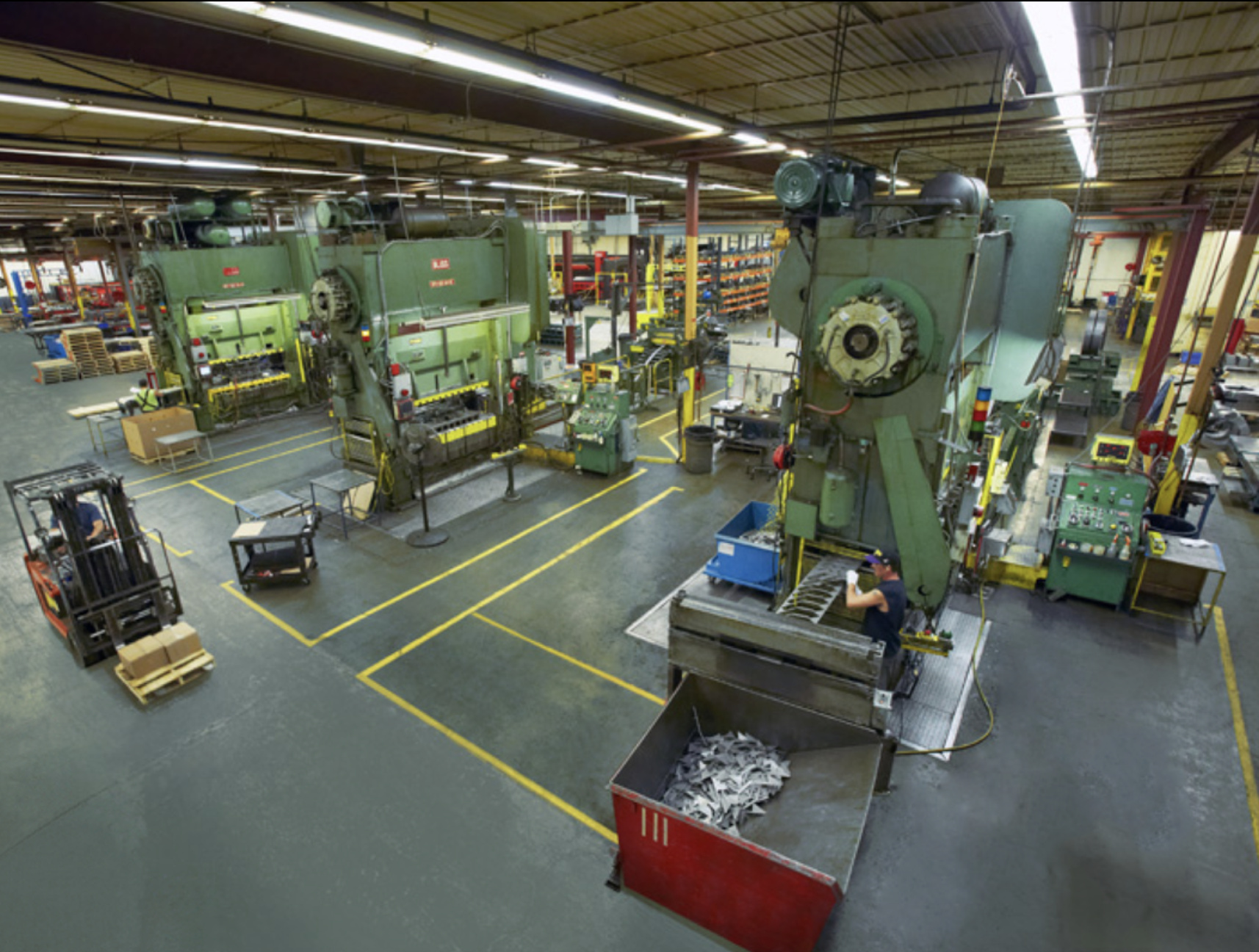

Share
At a small ceremony at the Circle Pine headquarters of BERMO incorporated 4 of 5 graduates of the Industrial Manufacturing Technician (IMT) Apprentice program beamed with pride. BERMO, Inc is a, “premium manufacturer of metal components.”

In Minnesota, the IMT program is two years old. BERMO is the first company to house the program and graduate a class.
Longtime employees and new certificate holder Steve Anderson explains that “you can still teach an old dog new tricks.” Anderson embodies the intention of the program. According to the program website the goal is to help, “employers and unions fulfill the growing need for skilled advanced manufacturing production workers. The IMT is a nationally recognized apprenticeship registered with the U.S. Department of Labor that trains front-line manufacturing production workers in skills manufacturers.”
An IMT apprenticeship program is 18th months or 3,000 hours which often are in the same the some which amount to 2-3 hours of strenuous work in the classroom. Specific skills taught are;
• Set up, operate, monitor, and control production equipment;
• Help improve manufacturing processes and schedules to meet customer requirements;
• Understand manufacturing as a business system that integrates multiple disciplines, processes, and stakeholders;
• Efficiently and safely manage time and materials.
A self-described “jack of all trades “Anderson explained that the program serves as, “validation of the skills I actually have.” Entry level jobs are straightforward; however, with each promotion, the tasks become more complex. Anderson argues that with this sort of training and awareness, “you can see something that maybe other folks didn’t catch” creating a safer and more productive work environment.
online pharmacy order lariam no prescription with best prices today in the USA
BERMO Plant Manager Tom Frister further explains that “new hires have a lack of a skill set. these programs help alleviate that.” He explained, “people are not born skilled.”
The funding comes from the federal Department of Labor American Apprenticeship Initiative grant. $5M was awareded to Jobs For the Future.
“Jobs for the Future is excited to be one of the grant recipients, receiving $5 million to expand our partnership with the Working for America Institute of the AFL-CIO, Wisconsin Regional Training Partnership, and four other local intermediary organizations to establish and promote the new Industrial Manufacturing Technicianhybrid apprenticeship model. The funds will also be used to create 1,450 industrial manufacturing technician apprenticeships across eight states: Wisconsin, Minnesota, Indiana, Kentucky, Ohio, Michigan, Pennsylvania, and Illinois.”
According to the federal Department of Labor,
“Hands-on apprenticeships, where workers earn and learn at the same time, are a proven path to good, secure middle-class jobs. In fact, 87 percent of apprentices are employed after completing their programs, with an average starting wage above $50,000. The return on investment for employers is also impressive — studies from around the globe suggest that for every dollar spent on apprenticeship, employers get an average of $1.47 back in increased productivity, reduced waste and greater front-line innovation.”
Therefore, the IMT certificate program is designed to develop a pathway for shop floor workers to ascend into the available and needed higher skilled better-paying positions.
online pharmacy https://www.bostondentalgroup.com/wp-content/uploads/2011/11/singulair.html no prescription
The program responds to a unique situation in our economy; a lowering unemployment rate coupled with stagnant wages.

Younger workers are also steering away from industrial and manufacturing work.
Frister explains that from a workforce perspective, “the low unemployment rate means that you have to do things differently.” Industrial Manufacturing Technician (IMT) Apprenticeship gives workers an opportunity to learn new skills and grow into available positions thus advancing careers and filling in workforce gaps.
Pine Technical and Community College Director of Workforce Development Heidi Braun-Kahn explained that the classes were specifically designed for the program through a 2012 federal advanced manufacturing grant. The classes are adaptive responding to the reality that working adult have various obligations, for example, raising children, that present a barrier to pursue an advanced manufacturing certificate. Instead, the courses are offered through interactive television, as Braun-Kahn describes, “to bring the training to their workplace.” She also explains that many of these workers had never gone to college or hadn’t been in quite some time. Having these courses with co-workers at the workplace easies the tension of being forced to go to a community college campus. Braun-Kahn notes that with renewed confidence workers often pursue college courses afterward. For her, ‘ it is neat to see them come back.” Overall for Braun-Kahn, “it has been a great partnership with the Minnesota AFL-CIO.”
Graduates Pedro Driscoll and Dan Gese describe themselves as lifelong learners therefore they enjoyed the experience and were excited to take advantage of it. However, aspects of the program were not met with enthusiasm. For Driscoll, “math was hard, haven’t done it in many years.”
IUE-CWA Local 1140 President Howard Terry explains that from the union’s perspective the program encourages a better relationship with the employer, “companies and unions are not always adversarial. It has worked out beautifully.” For Terry, the investment in employees through education, “sparks new life.” For those reasons and others Terry, “fully endorses the IMT certificate program.”
online pharmacy spiriva with best prices today in the USA
While employers were hesitant at first to partner with unions on a workforce program the success at BERMO proves that the program works, demonstrating it’s validity. Employers in St. Cloud are showing interest among others as manufacturers learn become aware of the benefits. The goal is to eventually graduate 100 workers, 50 are currently enrolled.
online pharmacy purchase clomid without prescription with best prices today in the USA

